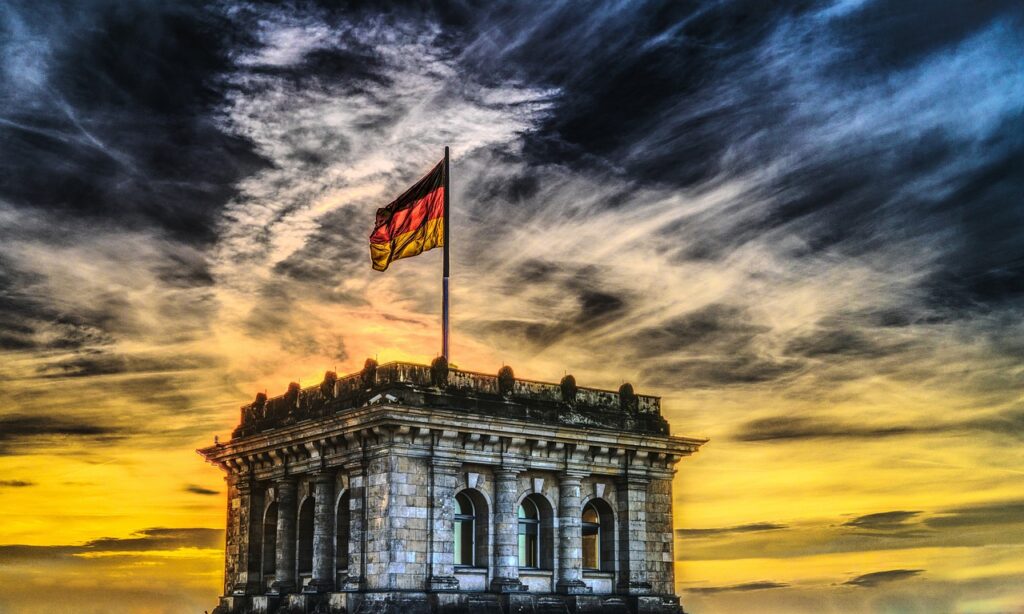Germany’s election and Ukraine’s war: Germany’s upcoming elections will take place on the third anniversary of Russia’s full-scale invasion of Ukraine. While the war has reshaped global politics, it remains largely absent from Germany’s election debates. Former Ukrainian Foreign Minister Dmytro Kuleba warns that Europe must recognize the growing threat posed by Russian President Vladimir Putin’s ambitions.
Germany’s Elections and the War in Ukraine – Germany’s election and Ukraine’s war
On the eve of Ukraine marking three years of war, Germany will hold elections. However, the issue of supporting Ukraine has received little attention in campaign discussions. Despite Ukraine’s ongoing struggle, many German politicians have avoided the topic.
When asked why Ukraine is not a priority in Germany’s elections, Kuleba said, “Because you don’t believe it could happen to you.” He understands this mindset. Many in Germany feel safe, believing there is no immediate danger.
“You’ve forgotten how fast things can change,” he warned. “We never imagined this war could happen to us either.”
Despite this, Kuleba acknowledged Germany’s shift in supporting Ukraine. Since 2022, Germany has become Ukraine’s second-largest ally, providing military and financial assistance. However, he believes that Chancellor Olaf Scholz’s refusal to send Taurus cruise missiles casts a shadow over these efforts.
“That’s politics,” Kuleba said. “People remember what you didn’t do, not what you did.”
Scholz’s Red Line and Germany’s Hesitation
As foreign minister, Kuleba repeatedly criticized Germany for its hesitation over supplying Taurus missiles. In 2023, he openly expressed frustration, blaming delays in German military support for increased Ukrainian casualties.
Scholz has remained firm in his decision to withhold Taurus missiles, despite pressure from Ukrainian and European officials. Kuleba believes Scholz wants to prove that when he sets a limit, he sticks to it.
“He first refused artillery, then tanks—now Ukraine has both,” Kuleba noted. “At some point, he drew a red line.”
The next German government may reconsider this policy. But Kuleba believes the bigger issue is whether Europe will take responsibility for its own security.
“If Ukraine falls, Putin will challenge NATO,” he warned. “This is not fearmongering. The West ignored Putin for 20 years. His goal is to destroy Ukraine and dismantle the West.”
Europe’s Role in Defending Democracy
Kuleba argues that European nations must prepare for future threats. If Ukraine does not win, Putin’s ambitions will not stop at its borders. Many experts agree that a weakened Ukraine would give Russia more power to destabilize other European countries.
So far, Germany and other NATO members have provided Ukraine with military aid, financial support, and sanctions against Russia. But Kuleba believes more decisive action is needed.
“Europe must take a stronger stance,” he said. “Waiting for the U.S. to lead is not a strategy.”
Germany’s elections will shape its future policies, but ignoring Ukraine’s war could have long-term consequences. European leaders will have to decide whether to increase military support or risk letting Russia gain more ground.
Kuleba’s New Role and Reflections on War
Kuleba resigned as Ukraine’s foreign minister in September 2024. He now teaches at Harvard University and Sciences Po in France. Despite his academic role, he remains deeply involved in Ukraine’s fight for sovereignty.
He still lives in Ukraine and has no plans to leave. Teaching allows him to influence global perspectives on the war.
“People must judge Ukraine independently, not through Russia’s lens,” he said.
As Ukraine prepares to mark another war anniversary, Russian forces continue their attacks. Cities remain under bombardment, and millions of Ukrainians still face daily dangers. Kuleba vividly remembers the early days of the war.
“War forces clear decisions,” he said. “There’s no middle ground.”
Months before Russia’s invasion, Kuleba predicted that an attack was imminent. When the war began, he chose to stay and fight.
“I crossed back into Ukraine on February 25,” he recalled. “I never doubted my choice—and never will.”
A Turning Point for Europe
The timing of Germany’s elections highlights a critical moment in history. As the war in Ukraine enters its fourth year, European nations must decide their role in defending democracy. While Germany has provided strong support, Scholz’s refusal to send advanced weapons remains controversial.
Meanwhile, Russia continues its aggression. Ukraine’s fight is not only about its own survival but also about protecting Europe from future threats.
Kuleba’s message is clear: Europe cannot afford to ignore the war. It must act now or risk facing even greater challenges ahead.
For the latest updates world news, visit New York Mirror.


